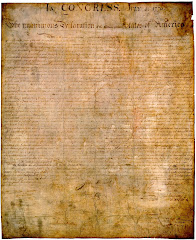
On Saturday, March 8, 2008, President George W. Bush vetoed a congressional bill that would have explicitly banned interrogation techniques like waterboarding. In doing so, Bush cemented his worthiness of impeachment.
The impeachment power allows Congress to keep the other two branches from grasping at powers that the Constitution gives to the Legislative Branch. Congress is described in Article I of the Constitution, and its structure was the chief issue in the Philadelphia Convention. Why? Because in a republic, it is to be the most important branch.
People commonly repeat the idea today that the federal government features three equal branches. This is an error. Congress is to be the most important branch. The Founders generally feared the power of the executive and assigned the traditional royal powers in foreign policy to Congress instead of the president. The courts were to be even weaker, the “least dangerous” branch.
Yet, over time, the three have come to be more equal. This is the result of Congress’s supine attitude toward the other branches’ overreaching. When federal courts legislate, Congress does nothing. When presidents and their subordinates—generals, cabinet officials, and others—ignore statutory law, refuse to comply with congressional demands for information, or flat-out lie to Congress, Congress does nothing.
Read more...






